Nobody from our family has ever been to South America. You should go! But where will you stay,” asks Ma anxiously in early 2013. “Did you say seven countries in 99 days? Have you found good hotels? Do you have friends in that continent?”
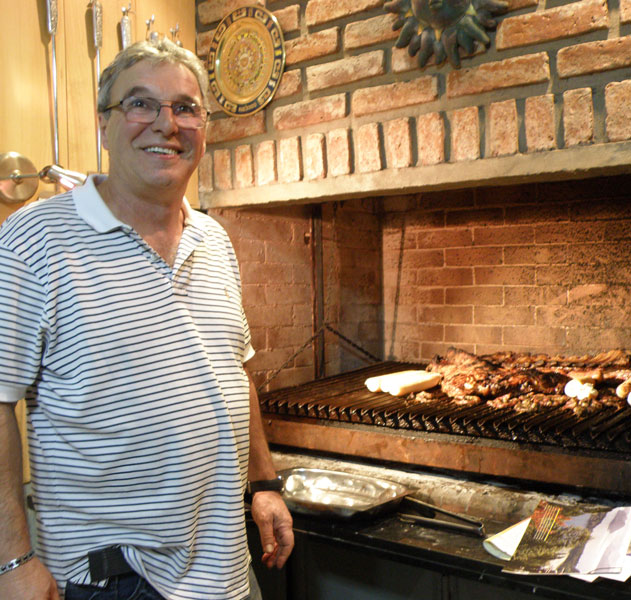
The answer is clear: no, many times over. Ma knows I wander to recharge my creative batteries as a writer. Not as a luxury vagabond or a tourist, but as a traveller seeking the human touch. Faces and stories always win over checklists and monuments. Once 22 flights and multiple visas are covered, my shoestring budget will not stretch to hotels or Airbnbs. Yet, the call of the unknown must be answered.
Over 28 stops, a mix of two options seems workable. One is Youth Hostelling International, embracing generations, a positive choice while backpacking through Ireland and Scotland in 2001. The other? Founded in San Francisco in 2004, Couchsurfing — a cost-free online hospitality exchange — has a current global membership of over 14 million. An unimaginable cultural interchange blooms. So do friendships beyond imagining.
Creating a Couchsurfing profile proves simple: Single, footloose, nearly 60, addicted to reading and writing, art and theatre, music and dance, textiles and crafts.
My six Couchsurfing hosts from Argentina, Chile and Brazil shared their homes and their hearts with me. Can a hotel or hostel ever match the generosity of spirit, the luminous moments that came my way, thanks to them?
How will folks in Buenos Aires, my first stop, respond? Over 20 Argentinian Couchsurfers, between 21 and 65, offer their homes. After scanning promising hosts, I settle on Magali. Barely 32, a corporate employee, she lives with her parents. Shall I cook them an Indian meal, topped off with Torta Tres Leches, a luscious South American cake I have mastered in Bengaluru? Yes.
Warming to Couchsurfing, in May 2013, I host 18-year-old Rita from Taiwan, on her first trip to India. Transcending age, we bond as storytellers and listeners, foodies to boot. We try the Bengaluru Metro. We lunch with an artist friend. We take in a children’s play, partly in gibberish, at the perfect Ranga Shankara theatre. Rita’s impressions: “Everyone told me Bengaluru was a boring IT city. But I loved your life, your beautiful home, cooking with you….” We remain in touch.
As for me, four years on, my Buenos Aires visit lingers vividly. At Pistarini airport, at 9.40 pm in October 2013, doubts assail me. Will I recognise my host from her Couchsurfing profile? How does one operate an Argentinian ATM? Dare I approach strangers for help with my sprinkling of Spanish? Magali’s dazzling smile dispels my doubts.
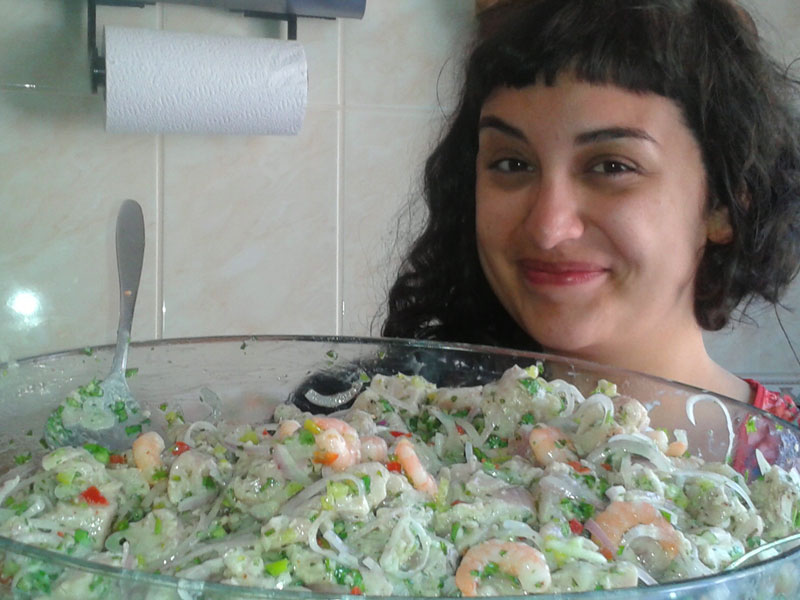
The next morning, she hands me her bus pass. Papa Osvaldo changes my US dollars into Argentinian pesos. Impressions of their capital still tango by. Of a huge Peronista demonstration for Loyalty Day in the historic Plaza de Mayo, reminiscent of a rebellious Kolkata. Of voices raised for the homeless, for civil rights, for justice for the maimed veterans of the 1982 Malvinas (aka Falkland Islands) war.
The capital shows another facet within the swank 11,000 sq m Gallerias Pacifico on Avenida Cordoba. Housed in a building dating back to 1889, we admire the fabulous frescoed ceilings. Magali and her friends point out stylish Argentinian brands, including Adriani Constantini, Maria Cher and El Boyero. Chancing upon ‘Indian Style,’ overflowing with oriental scarves and beaded bags, we collapse in laughter in the passageway.
Suddenly, Julietta breaks in, “A film crew was shooting a documentary here in 1987. They found a grim sight in the basement. Fingernails had etched cries for help on the walls of this former torture chamber. For the military dictatorship that governed Argentina from 1976 to 1983 was merciless. Over 30,000 people ‘disappeared.’” This slice-of-life story shakes us into silence.
In my transit home away from India, Argentinians prove to be as family-centric as Indians. Magali gives me her pretty bedroom. Osvaldo sets up a traditional Sunday asado of barbequed meats for the extended family. On Mother’s Day, we toast Mama Analia with champagne over a lavish infinity buffet at Gourmet Porteno in upmarket Puerto Madera, as the Rio de la Plata flows by.
Ingeborg, a young textile designer, has a lyrical line from our favourite poet Pablo Neruda tattooed across her forearm.
Six days later, as I repack for the magnificent Iguazu waterfalls, we guffaw over shared experiences. How I tried to teach Magali and Analia basic shavasana, disrupted when their shaggy dog Brianna joined in. How easily I took to the traditional herbal yerba mate drink at Analia’s insistence. At 2 am, they shower me with gifts, including a lace-edged handmade poster that says, Follow Your Dreams.
My Couchsurfing saga continues at Mendoza in north-central Argentina. Milagros, a single mother and a chef, hosts me. She wangles a free conducted trip to the Bodega Zuccardi in the Maipu wine region where, amidst giant vats, wooden kegs and bottles of prized vintage, their staff offer glimpses of generations-old family secrets. Over olive oil ice-cream, we agree that their Santa Julia Malbec is as glorious as the world’s best red wines.
Milagros’s daughter Agustina, 16, is immersed in J Krishnamurthi’s philosophy (in Spanish translation). They pepper me with questions: Are all Indians spiritual? What does the bindi signify? Will I lose my passport if I eat beef in Argentina? Do I wear a saree 24/7 in India? Night-long conversations disperse their misconceptions as we weave through love, loss and all life in between.
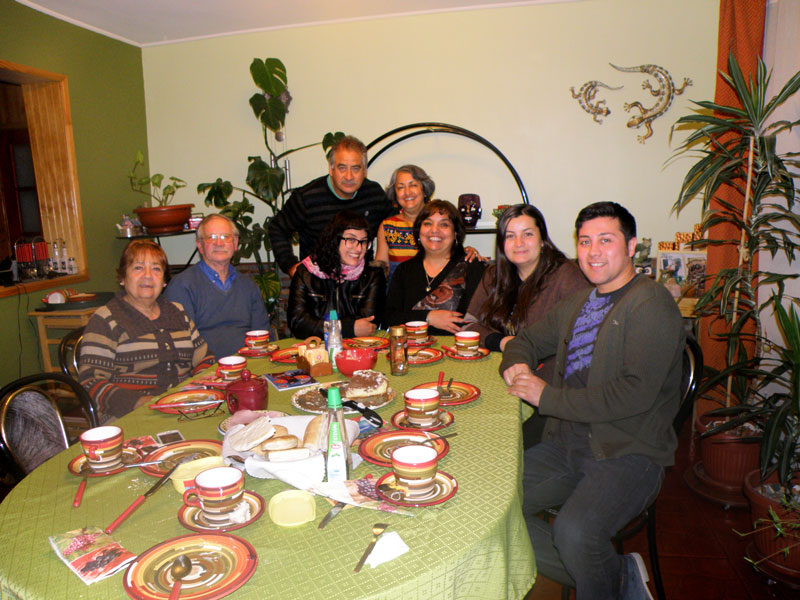
At Valparaiso, the picturesque Chilean port straddling 44 hills, I make a quixotic choice. For Ingeborg, a young textile designer, has a lyrical line from our favourite poet Pablo Neruda tattooed across her forearm. Her father Hans, a marine engineer, has visited Mumbai. Her mother Gladys repairs computers over the internet. But the family’s star is undoubtedly Hans’s mother, Agnes. Still sparkling at 82, she jokes about all her boyfriends before she met grandpa Hector, her constant sparring partner. She gamely troops up and down ancient stone steps to share a scenic viewing point.
Back from Neruda’s beautiful Valparaiso home one afternoon, we rush next door to visit Agnes, battling a stomach bug. But she is missing. Hours later, Agnes hands me a gift-wrapped chic, black leather handbag. “You are small, like me,” she explains, pointing to my outsize Kipling bag. “That is not chic. Too big, too big.” She sighs. “You are my granddaughter, like Ingeborg. Promise you will come and visit me again before I die?” We bond in a wraparound hug.
My Sao Paulo hosts — Fabio (a banker) and Giselle (a professor of Brazilian literature) know of my lifelong dream: a live football match on Brazilian turf. We drive to Enbu to check out traditional weaves, jewellery, blown glass, folksy clay busts. We mull over dazzling street art around Vila Madalena.
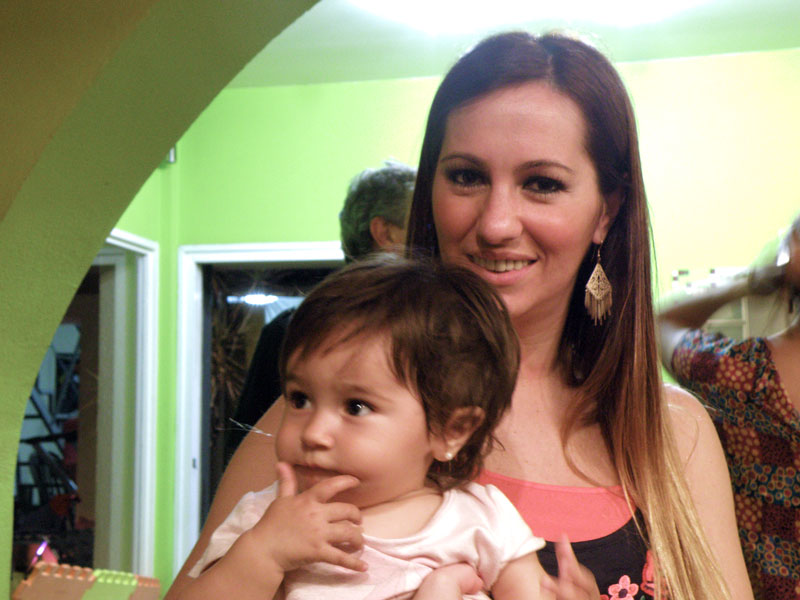
At the Fundacio Maria Luisa e Oscar Americano, once a cha estate (we share the word for tea), colonial lessons surface amidst priceless medals and pistols. Mainly about Dom Pedro I, the Brazilian emperor from 1822 to 1831 (son of Portugal’s King John VI ). Later, after a fabulous Moqueca fish stew for lunch at Fabio’s maternal home, topped by the best caramel flan ever, he announces casually: “And oh, Aditi, after lunch we are going to the Estadio do Caninde, to a Corinthians versus Portuguesas match…” I burst into tears. For my flight to Bengaluru leaves in less than 12 hours.
Fabio has shied away from football since he met Giselle — and his family abhors the fabled Corinthian team. Giselle opts to join us (“We can’t leave you to these wild fans”). Surrounded by babies and grandfathers alike in red-green Portuguesa colours, we clap to the team anthem amidst mounds of peanut shells. It matters little that the beefy Corinthians thrash our team. The atmosphere — including a pulsating Brazilian wave in the stands — remains imprinted on my mind’s eye. As I set out to visit the Museu do Futbol in Sao Paulo, Giselle slips a note into my palm. Addressed to the cobrador or bus conductor, it reads: ‘My friend Aditi is from India. She knows no Portuguese. Kindly see that she gets off at the right stop for the football museum. Obrigado. Thanks.’ The burly busman reads it, grins — and ensures that I am on the right track.
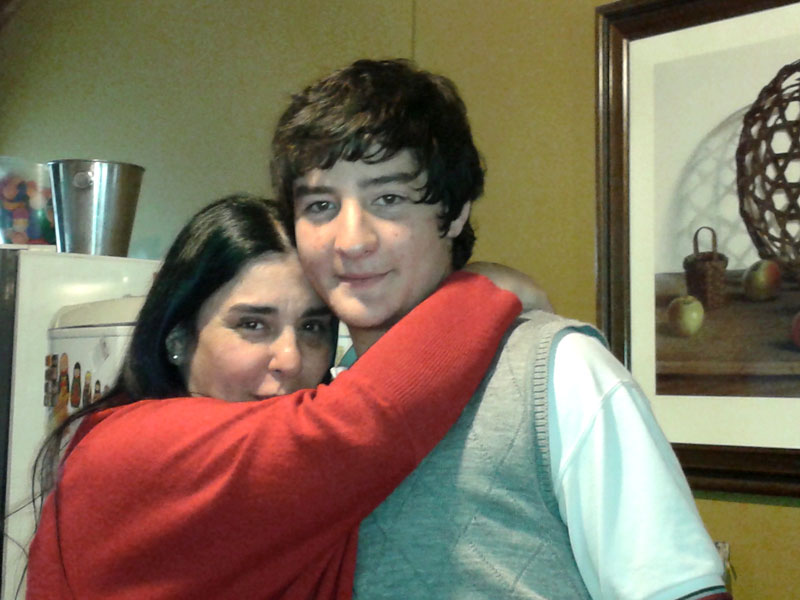
The personal and the local colour my engagement with Patagonia and Tierra del Fuego. For in Punta Arenas in south Chile, Francisco (an English-speaking cartographer with a messy home) narrates how 40-plus local Indians families built a Hindu temple at this strategic military base on the Straits of Magellan. “It all began in 1904, when Bhojrajmal Nandwani took a steamer from British India to Chilean Patagonia. His Sindhi descendents own the biggest Toyota dealership in our town of 150,000,” he says.
Another city, another story. At Ushuaia, the earth’s southernmost city in Argentinian Tierra del Fuego, my heart breaks over dinner at the home of lovely Carla, a journalist-turned-politician. Tears season the exquisite King Crab for supper as we listen to her friend Andreas: “When I was 18, we were conscripted for the 74-day Malvinas war. We were not trained for battle. Before we surrendered, a British grenade landed on my best friend. His blood and guts were all over me. He died.” Over 31 years later, the trauma still festers.
My six Couchsurfing hosts from Argentina, Chile and Brazil shared their homes and their hearts with me. Can a hotel or hostel ever match the generosity of spirit, the luminous moments that came my way, thanks to them? Unlikely, if ever.
Ma, who left us in 2015, loved tuning in to my Couchsurfing adventures, checking out my hosts virtually. In spirit, as in person, she would approve of the way I now explore the globe.
Have couch, will travel. How else will I embrace the world?
Pictures by Aditi De





